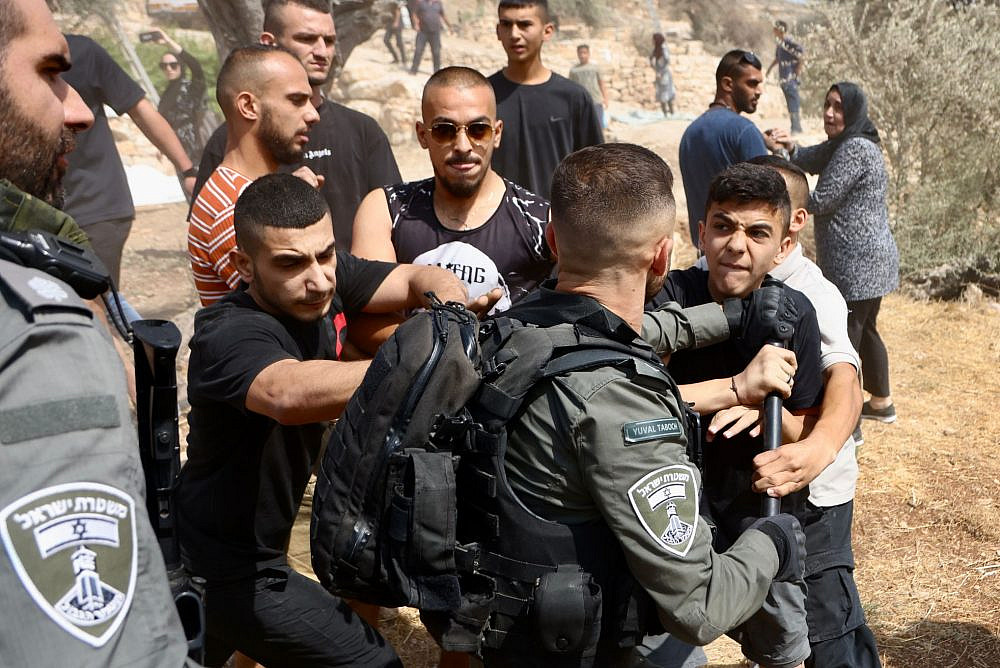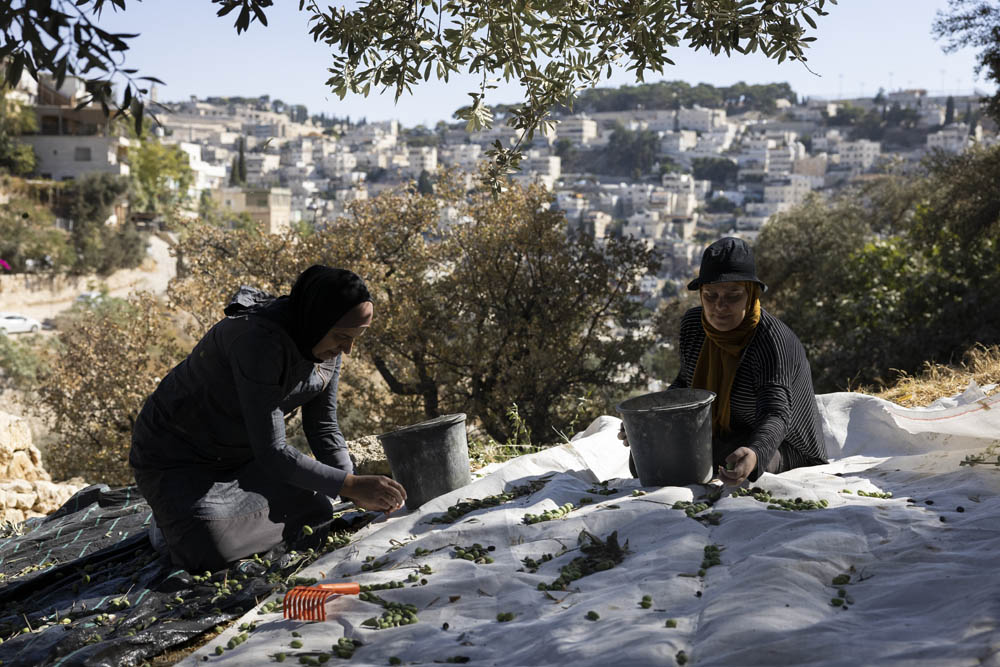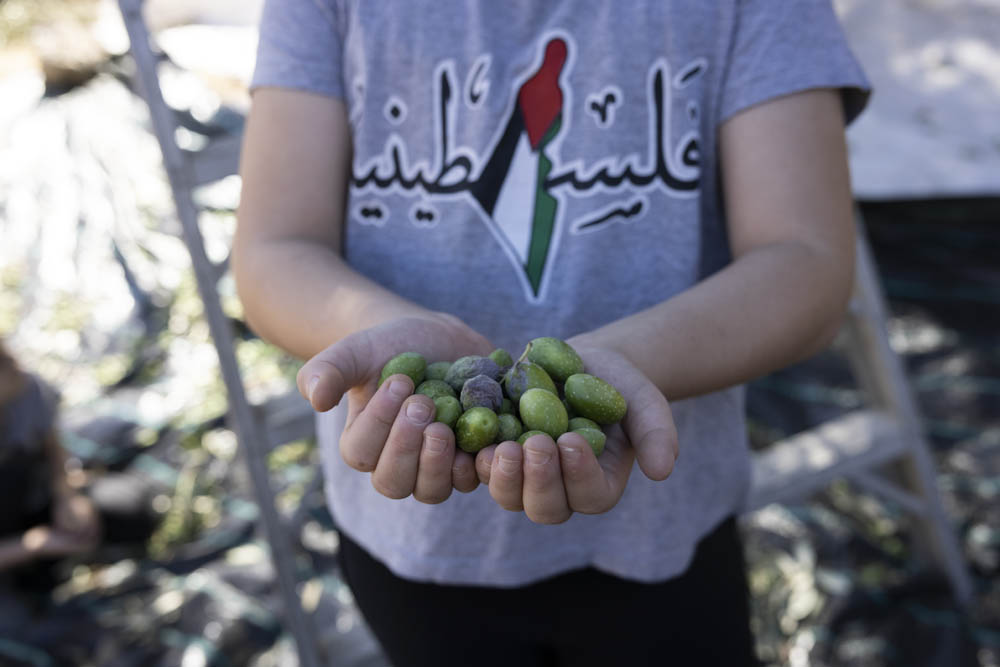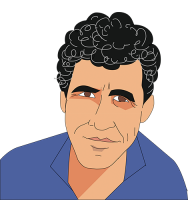This article was published in partnership with Local Call.
An olive grove in the East Jerusalem neighborhood of Silwan has become the latest site of struggle between Palestinian residents, who have cultivated the flora for generations, and Israeli authorities and organizations, which have been coveting land and property in the area for years as part of their agenda of “Judaizing” East Jerusalem.
On Oct. 6, uniformed female soldiers were observed collecting olives from the trees in Silwan’s Wadi Rababa, a section of the Hinnom Valley which is part of a national park around the walls of Jerusalem’s Old City. Although it falls under the purview of Israel’s Nature and Parks Authority, the area has been designated as an “agricultural farm” and has been managed for the past two years by Elad, a settler organization that has been centrally involved in Israeli encroachments in Silwan.
In July, Local Call revealed that a contract was signed between Elad and the Nature and Parks Authority stipulating that the former would be in charge of running the newly-designated “agricultural farm” for a period of ten years. The investigation found that the contract was drawn up after the head of the Nature and Parks Authority at the time, Shaul Goldstein, met with an American donor who promised to make a large donation to Elad on the condition that the organization would be in charge of the farm for an extended period.
The farm manager from Elad had promised Silwan’s Palestinian farmers — who have tended to the trees for decades — that they would be able to continue processing and harvesting olives in the area, and that outside visitors would not be allowed to do so. Yet when Palestinian farmers arrived to harvest the trees on Oct. 7 (the day after the soldiers’ visit), police officers denied them access, detained two Israeli activists accompanying the farmers, and arrested a Palestinian youth.
Elad began operating in Silwan 20 years ago after acquiring the site known today as the “City of David,” a Biblical park in the heart of the neighborhood, despite the opposition of the Palestinian residents and left-wing organizations.
Around the same time as the agricultural farm was established in 2021, the Israeli High Court approved the construction of a cable car that will pass over Wadi Rababa, with its final stop planned for the roof of a building which is currently being built by Elad in Silwan, near the Old City wall. The cornerstone was laid late last month for a cable-stayed bridge that will lead from Mount Zion, on the northern bank of the valley, to a building on the southern bank that Israel purchased on the outskirts of the Palestinian neighborhood of Abu Tur, which it has turned into a garden.
‘The army is meant to guard borders — now it’s picking olives?’
The Wadi Rababa area that was transferred to Elad includes land and buildings that are either currently owned by Palestinian residents of Jerusalem, or that have been declared “absentee property” — property that was confiscated from Palestinians who were deemed “absent” after their flight or expulsion by Israel.
The Jerusalem Municipality has issued “gardening orders” for some of the privately-owned areas, while Elad is tasked with carrying out the gardening on behalf of the Nature and Parks Authority. The land on which the soldiers were harvesting olives this month was registered as “absentee property” in 2021, but Palestinians say they have been caring for the trees for decades.
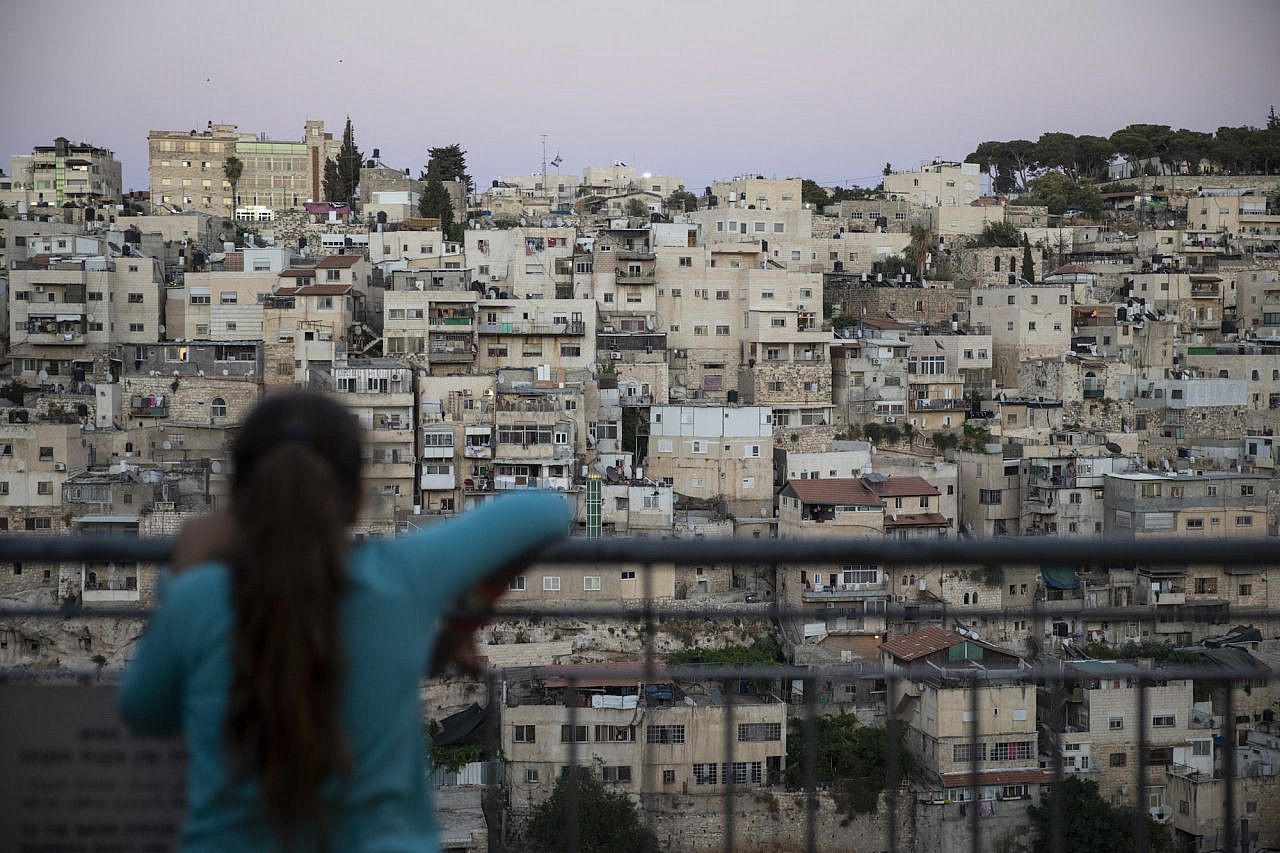
The establishment of the “agricultural farm” was intended to “restore biblical agriculture with a modern approach,” the Elad farm manager told Local Call during a visit to the area about two months ago. The manager said that although the farm area is fenced off, the Palestinian landowners are still allowed to enter to take care of the trees and harvest them when the season comes. He also said that the organization does not bring visitors to the olive plots nor allow them to harvest there, and that they only carry out development work in these plots.
A few weeks later, when the manager was asked by activists what changes had occurred that allowed the soldiers to enter and harvest the trees earlier this month, he replied that he had received new directives from the Nature and Parks Authority permitting them to pick the olives there. According to him, he did not have this permission a month and a half ago.
Ibrahim Sumarin, a resident of Silwan who says he owns a plot of land in the area handed over to Elad, explained that the situation has worsened since the organization took over management about two years ago. “We have a land registration document proving that this is our land. Then suddenly they came and took it,” Sumarin said. “The army is meant to guard the country’s borders, to deal with security — now it’s picking olives? We are not allowed to harvest, and they are allowed?”
Sumarin said that Elad insisted to the Palestinian landowners that the organization was “just cleaning the area and that we [the farmers] could harvest. But in reality, they are doing something else. They destroyed things we built in order to construct [terraces] themselves.”
Sumarin emphasized that the problem is not just about the olives, but the broader attempt by the Israeli state and settler groups to take over what remains of Palestinian land in the city. “In Silwan, there is no place to build [houses]. This is the only area we have left,” he said.
‘They want to hit us where it hurts the most’
Raz Handler, an Israeli activist who was present on Oct. 6 when the soldiers entered the olive grove, wrote a Facebook post in which he quoted one of the Palestinian residents who watched the soldiers from afar. “Do you know why they [Israelis] don’t harvest over there [in other parts of the valley], but want to harvest here so badly? Because they want to hit us where it hurts the most. They know that we have taken care of these trees for years and years. They know what the olive symbolizes for us, and they want to hurt us directly in the heart. And it hurts.”
“For hundreds of years, the Palestinian residents of Wadi Rababa/ Ben Hinnom planted and tended to the olive trees,” said Uri Ehrlich, the media coordinator of Emek Shaveh, an NGO that combats the exploitation of archeological and heritage sites as political tools for dispossession. “The attempt by the police to prevent the harvest is part of an effort to negate the Palestinian history of the valley — which itself is a part of the Judaization of East Jerusalem led by the state, the Nature and Parks Authority, and Elad. It is destined to fail. The olive trees and the traditional agriculture of the Palestinians will continue to exist.”
In response to inquiries from Local Call, the Nature and Parks Authority stated: “We are in the harvest season. In the case in question, soldiers were operating in the territory where the land is registered as land owned by the state. The activity was carried out as planned. As a general rule, the Nature and Parks Authority is entrusted, among other things, with safeguarding state lands. On private lands and unregulated lands, no harvesting is carried out by the Authority. On state lands, the Authority organizes harvesting with youth groups, soldiers and volunteers, on lands that are clearly owned by the state. In all cases where there are claims to ownership of lands, we prevent the claimants from taking any action on the land, including harvesting.”
It continued: “It is important to remember that at any time those who claim ownership of the land contrary to the state’s position can go to court and try to prove their claims. Despite the claims of ownership, the courts have time and again accepted our position and rejected the claims of the petitioners. Accordingly, last Friday the police allowed residents to harvest on lands that are not registered as owned by the state and, on the other hand, evicted residents from state lands who claimed that they owned the land.”
A request for a response sent to Elad before the Jewish holidays has not yet been answered, and will be added here if and when it is received.
A version of this article first appeared in Hebrew on Local Call. Read it here.

